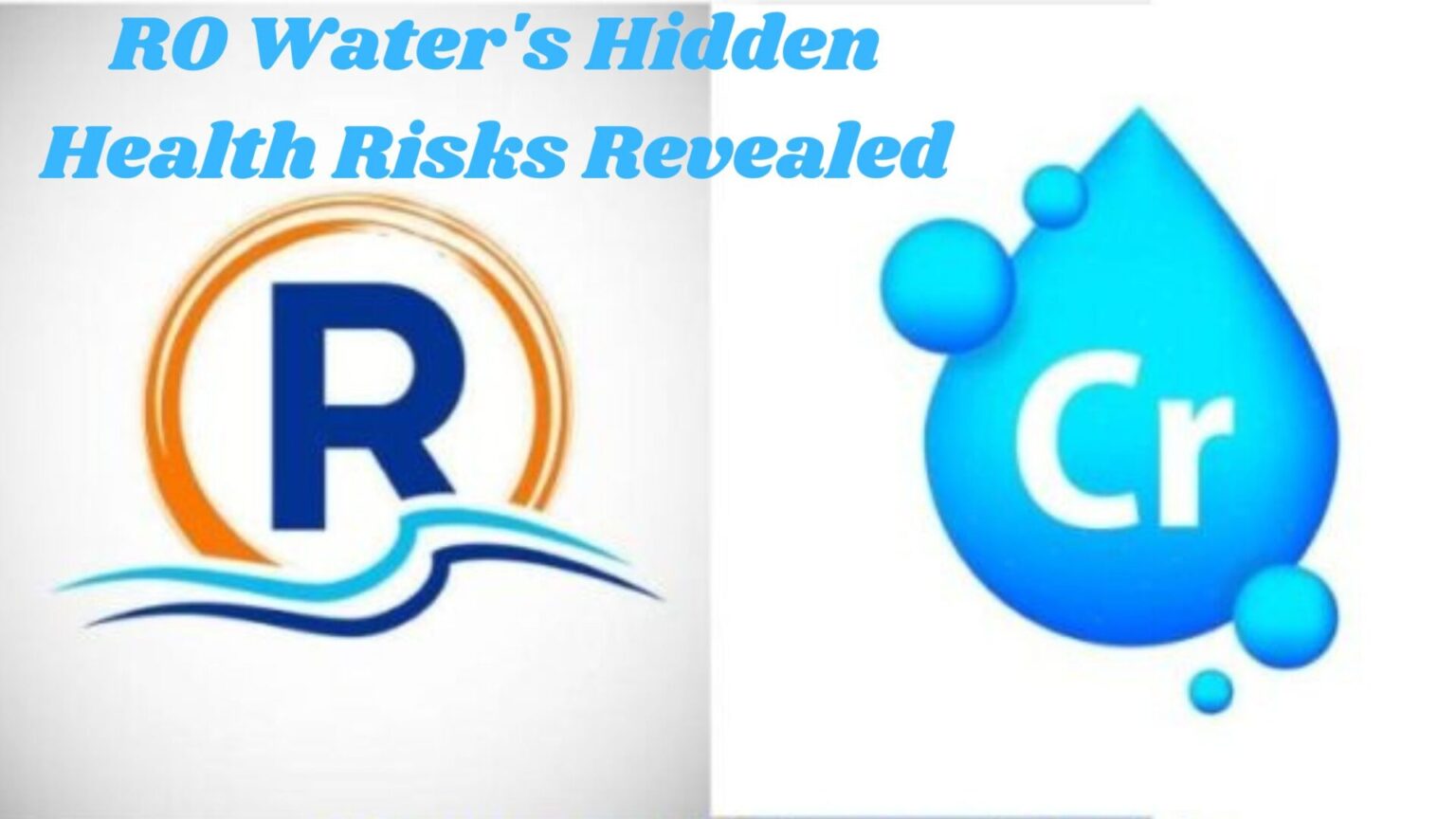Introduction:-
Beyond Purity: RO Water’s Hidden Health Risks Revealed

In today’s quest for clean water, many households turn to Reverse Osmosis (RO) systems to ensure purity. However, beneath the facade of crystal-clear water lies a concerning truth: RO water may harbor hidden health risks. Let’s delve into this topic to uncover what lies beyond the veil of purity.
RO Water’s Hidden Health Risks
RO systems have gained popularity for their ability to remove contaminants and impurities from water, promising a safer drinking experience. Yet, while they excel at eliminating harmful substances, they also strip away essential minerals, including calcium, magnesium, and potassium. This mineral deficiency can have far-reaching consequences for our health, impacting everything from bone density to cardiovascular function.
Moreover, the process of reverse osmosis doesn’t discriminate between harmful substances and beneficial ones. Alongside pollutants, vital nutrients like Vitamin B12 can be filtered out, leading to potential deficiencies. Vitamin B12 plays a crucial role in nerve function, DNA synthesis, and red blood cell production. Its deficiency can manifest in various symptoms, including fatigue, weakness, and neurological issues.
But the concerns don’t end there. Research suggests that drinking demineralized water, such as RO water, may contribute to electrolyte imbalances and even increase the risk of certain health conditions. Studies have linked long-term consumption of RO water to gastrointestinal problems, including acid reflux and digestive disturbances.
Furthermore, the absence of minerals in RO water alters its taste and texture, often leaving it with a flat, unappealing quality. This can discourage individuals from drinking an adequate amount of water, potentially leading to dehydration and its associated health complications.
So, what can be done to mitigate these risks? One solution is to supplement RO water with remineralization cartridges or additives. By replenishing essential minerals, these systems help restore the balance and improve the overall quality of water.
Another option is to opt for boiled water as an alternative to RO-treated water. Boiling water kills harmful pathogens while retaining essential minerals, offering a safer and more balanced drinking option.
Is it true that RO water causes deficiency of Vitamin B12 in the body?
While reverse osmosis (RO) water filtration systems effectively remove many impurities and contaminants from water, including certain minerals and nutrients, there isn’t direct evidence to suggest that RO water causes a deficiency of Vitamin B12 in the body.

Vitamin B12 deficiency typically occurs due to factors such as inadequate dietary intake, malabsorption issues, or certain medical conditions rather than the consumption of RO water specifically.
That said, some studies have indicated that RO water can remove trace amounts of minerals and nutrients from water, including Vitamin B12. However, the extent to which this contributes to Vitamin B12 deficiency in individuals is not well-established, and other dietary sources of Vitamin B12 are usually more significant factors.
It’s essential to maintain a balanced diet rich in Vitamin B12 sources, such as meat, fish, dairy products, fortified foods, and supplements if necessary, to prevent deficiencies regardless of the type of water filtration system used. If you have concerns about your Vitamin B12 intake or health status, it’s advisable to consult with a healthcare professional for personalized advice and guidance.
Is it true that RO water causes problems like depression, digestive system, anemia in the body?
There is limited direct evidence to suggest that drinking reverse osmosis (RO) water directly causes problems like depression, digestive system issues, or anemia in the body. However, the quality and composition of water can indirectly impact overall health, and there are some concerns associated with consuming demineralized water from RO systems.
- Depression: While there isn’t specific evidence linking RO water to depression, dehydration resulting from inadequate water intake can contribute to mood changes and affect mental well-being. Additionally, if RO water consumption leads to a deficiency in essential minerals, it might indirectly impact mental health over time. However, depression is a complex condition influenced by various factors, including genetics, lifestyle, and environmental factors.
- Digestive System: Some individuals report gastrointestinal discomfort or digestive disturbances after switching to RO water. This could be due to the absence of minerals in demineralized water, potentially affecting the balance of electrolytes and altering the digestive process. However, the impact may vary from person to person, and not everyone will experience digestive issues from drinking RO water.
- Anemia: Anemia is typically caused by a deficiency in iron, Vitamin B12, or folate, rather than the consumption of RO water alone. While RO systems may remove trace amounts of minerals and nutrients, including iron, from water, the primary sources of iron deficiency anemia are dietary insufficiency, blood loss, or absorption issues. It’s essential to address the underlying causes of anemia through dietary changes, supplementation, or medical treatment, rather than solely focusing on water quality.
Overall, while RO water may have some potential implications for health due to its demineralization process, the direct link to depression, digestive system issues, or anemia is not firmly established. It’s essential to maintain a balanced diet, stay hydrated, and consider the overall quality of water consumed, including potential mineral deficiencies, when evaluating health impacts. If you have specific concerns about your health or water quality, consulting with a healthcare professional or water quality expert is advisable.
In conclusion,
While RO systems promise purity, they also come with hidden health risks. By understanding the implications of demineralized water on our health and exploring alternative solutions, we can make informed choices to safeguard our well-being. Remember, beyond purity lies the need for balance and holistic health.






